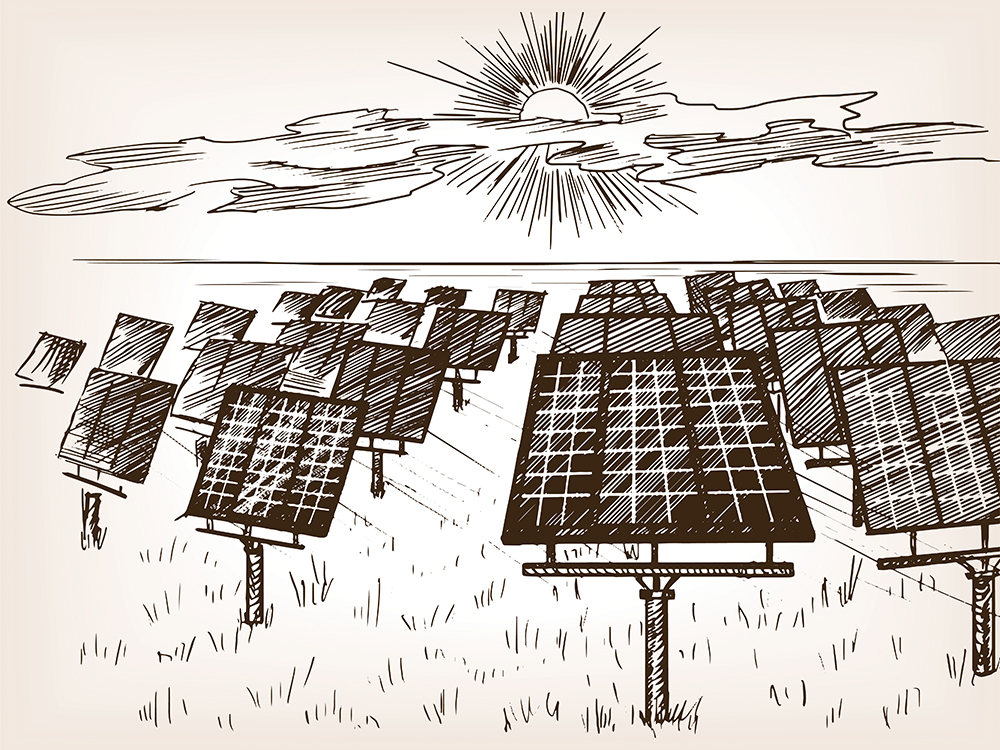Everything You Want to Know about Switching to Solar Power
By Staff | Spring 2020 | Clean Power Guide
Want to climb the clean power learning curve with healthy speed and limited pain? Here are some frequently asked questions when it comes to solar power.
What primary choices will I face if I want to put solar panels on my property?
Solar panels have become a commodity, a product that has many minor variations but is pretty much the same and is sold in volume. The major exception is high-efficiency panels like those made by SunPower, which are engineered to provide significantly more electricity per square foot. These cost more, but can be worth it if you are space-constrained or trying to max out your solar resources.
The other big choice in terms of your system design is in the inverter, the hardware that converts direct current from the panels into the alternating current that is needed in your building. You can put in one inverter for dozens of panels (cheaper) or have more inverters—one per panel or group of panels (more reliable in the unlikely event of a panel problem). This multiple approach means that if some of your panels stop functioning for any reason and shut down the inverter that is associated with them, then the rest of your array can still function.
I’ve been hearing about solar subscription approaches like Community Shared Solar and Community Choice Aggregation. What are these options?
These are the two major ways that you can go solar by taking advantage of a large-scale installation rather than installing panels on your roof. Community Shared Solar allows customers to chip in on power from a solar farm, either sharing credits or outright owning some of the panels. Community Choice Aggregation actually lets whole cities, towns, and villages subscribe to an energy alternative on behalf of their residents (who can opt out). Both are growing fast.
What if I live in an apartment or condo?
You need to get your landlord or association excited about renewable energy.
What if I live in a historic district?
Historic district homeowners have to conform to local guidelines, which likely come from some thoughtful source like the National Trust for Historic Preservation. Typically, they allow panels in locations that are not visible from the street.
Can I get completely off the grid with solar power?
Special, newer inverters can decouple your system from the grid if you are willing to invest in the battery backup to cover your power needs when the sun isn’t shining. An ordinary rooftop solar installation will turn off automatically when the grid goes down. That’s because there will probably be technicians working on the grid; bursts of electricity from your solar array could seriously injure someone.
Can I use a solar electric system (PV) to charge my EV?
Of course, and the EV can essentially serve as a storage system for your excess solar electricity. More and more solar installers are providing energy storage, EV plugs, and other equipment for the all-electric and off-grid life.
What kind of a warranty should be available for the purchase of solar panels?
It should guarantee the engineering of the system, and its performance, for a reasonable period—at least 10 years, preferably 20, since your panels will produce efficiently for at least that long.
Are there any reasons to wait and go solar later?
You can expect the price to go down over time, but in the meantime, you will miss out on savings compared to your current electric bill. Don’t overthink it!
